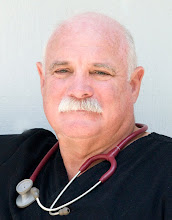Imagine my surprise when told by a reporter that it was illegal to be a hospital commissioner and hospital employee at the same time. Six years ago (Nov., 2005) I talked to the Atty General’s office and the Auditor’s office and was assured that there was no problem serving as a commissioner and being an employee of the hospital at the same time. “There is no reason that an employee nurse can’t be a commissioner.” So, I threw my hat in the ring.
In that election there were about 7000 votes cast and I lost by about 100. Had I changed the mind of 51 voters I’d have been on the hospital board. Pretty close, but nevertheless still a loss. OK, it’s the American way. As far as I know I was the only hospital employee in the state that was running for a commissioner’s seat.
Well, it must have caused quite a stir in some quarters because just a few weeks later, in Feb., 2006, Dick Goldsmith (http://www.gsblaw.com/professionals/richard_j_goldsmith/), from The Association of Washington Public Hospital Districts (http://www.awphd.org/) went to the legislature to lobby them to make this terribly dangerous practice ILLEGAL!
I’ll let you read the stuff for yourself.
This guy got paid money (that came from public hospital districts?) to snow the legislature with sophomoric arguments that totally ignore the fact that there is already conflict of interest language in Districts’ bylaws.
Let me comment on an excerpt from the info supplied.
“Testimony For: A public hospital district's administrator is responsible for the district's day to day activities. By law, the commissioners appoint and terminate the administrator. It is not in the public interest for an employee to be a commissioner because this could undermine public confidence in the board's objectivity.”
· Where is the evidence of such a claim? It could also be argued that the public could have more confidence in a board that knows first hand what is going on in the hospital.
“Due to a perceived or real conflict of interest, an employee commissioner may need to excuse him or herself from voting, and this could lead to a stalemate on important decisions.”
· Oh Please! The districts’ bylaws all have language that addresses conflict of interest. Following Mr. Goldsmith’s logic, absolutely nobody with the slightest possibility of needing to recuse himself should be on a hospital board at all, but if two people recuse themselves everything will be A-OK because we are now back down to an odd number of voters etc. etc. I could go on and on, but you get my drift.
“Washington law limits an employee from serving as a commissioner of a flood district or sewer district, among others.”
· I can’t speak to the issues attendant to other types of districts, but what does any of that have to do with hospital districts? We could just as easily point out that in the entire history of the state there has not been a problem allowing hospital district employees to serve as commissioners. Other states allow employees to serve as commissioners therefore Washington should too.
“There should not be a problem finding non-employees to run for commissioner positions.”
· Since when is it in the interest of the legislature to concern themselves as to whether or not there are enough non-employees to run? Isn’t the idea of freedom and democracy to allow the VOTERS to decide whom they wish to have represent them?
This whole thing reeks of the abuse of power and position. You will notice that nobody spoke against this proposal. Why not? I’m 99.9% sure this whole thing was catalyzed by my near victory but did anybody contact me for my input? No. Did anybody contact Nursing or MD organizations? Probably – but by means of some obscure legal notice that was sure to be overlooked. This thing is not well thought through at all. As a conscientious employee I resent being unable to keep my job and serve as a commissioner at the same time. As a voter I resent the idea that the electorate needs to be babysat and “protected from making a bad decision” by lobbyists and legislators who are oh so much more intelligent than we are. Year after year polls show Nursing winning out as the “most trusted profession,” caring for the most vulnerable members of our community and yet we nurses along with MD’s and other employees can’t be relied upon to be professional and trustworthy enough to be hospital commissioners?
To our supporters and donors: this has become much bigger than just a local election. We nurses are even more determined now to win the elections for all three vacant seats on the board. On behalf of patients throughout the state we want to send a message to Olympia and to the special interests that it's not a good idea to jeopardize the well being of patients by forbidding the most knowledgeable and competent candidates from running.

